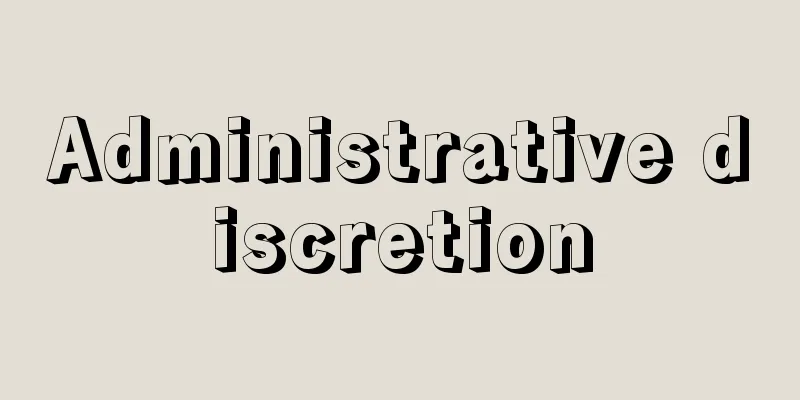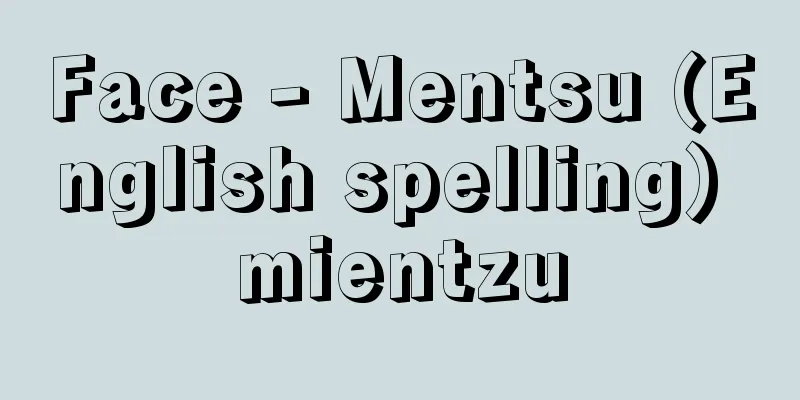Administrative discretion

|
Administration must be carried out based on the law. However, the law does not provide clear standards for the frontline officials who carry out individual administrative actions. Therefore, the executive branch supplements the law with Cabinet Orders and Ministerial Orders under the responsibility of the Cabinet and the Minister. However, these administrative legislations are not sufficient guidelines for the work of the responsible officials. Thus, standards for the interpretation and application of laws and regulations, such as notices, notifications, outlines, and guidelines, are created and shown to those in charge of administration. This is also the basic reason why discretionary issues arise in the interpretation and application of laws and regulations. These guidelines are internal administrative rules and are for the employees of administrative agencies, and there is no obligation to inform the public. However, because of this, when individual administrative actions are actually taken, administrative rules cannot become judicial norms, and administration by law becomes even more meaningless due to administrative discretion. Furthermore, even if there are guidelines, it is not guaranteed that the work will function. In reality, the responsible officials have no choice but to make their own judgments about each individual case, and discretionary actions in carrying out administrative actions will follow them to the end. Administrative discretion can be said to be inevitable in modern administration, but in order to avoid administrative self-righteousness, we must constantly explore what administrative responsibility is and how to ensure it. (Muneyuki Shindo, Professor, Faculty of Law and Economics, Chiba University / 2007) Source : "Chiezo" published by Asahi Shimbun Publications Co., Ltd. About Chiezo |
|
行政は、法律に基づいて執行されなくてはならない。しかし法律は、個別の行政の執行に当たる第一線の職員に明白な基準を示すものではない。そこで、行政府では、内閣ならびに大臣の責任によって政令、省令を定めて法律を補完する。だが、こうした行政立法も、担当職員の執務にとって十分なガイドラインではない。こうして、通達、通知、要綱、要領といった法令の解釈、運用についての基準が作成され、執務担当者に示される。法令の解釈、運用についての裁量問題が生じる理由も、基本的にここにある。こうしたガイドラインは行政内部の規則であって、行政機関の職員のためのものであり、国民に周知する義務はない。しかし、これによって、個々の行政処分が実際に行われる時、行政規則は裁判規範とはなり得ないから、法律による行政が、行政裁量によって一段と形骸化されることにもなる。さらに、ガイドラインがあっても、それで執務が機能するとは限らない。実際には、担当職員は個別のケースについて独自に判断せざるを得ないのであって、行政処分を行う裁量行為は最後まで付きまとう。行政裁量は、現代行政に不可避的なものといえるが、行政の独善を避けるためにも、行政の責任とは何か、それをいかに確保するかが、絶えず追究されるべきである。
(新藤宗幸 千葉大学法経学部教授 / 2007年) 出典 (株)朝日新聞出版発行「知恵蔵」知恵蔵について 情報 |
<<: Forced execution - Kyouseishikko
>>: Administrative Trial - gyosei saiban
Recommend
Ifukube clan - Ihokibeuji
…In 771 (Hōki 2), a woman from Takakusa County, J...
Transference - Ginkgo
〘 noun 〙 ("I" is a document exchanged be...
Red-breasted Lapwing - Red-breasted Lapwing
...The Peruvian lacewing Phytotoma raimondi is fo...
Danjogunto - Danjogunto
A group of islands in the East China Sea, 72 km s...
Schooner
...The classification of brigs, brigantines, and ...
German Democratic Republic
A republic that existed in the northeastern part ...
Conquest of the Emishi
...The "Ezo Management" was the process...
Smithsonian Institution
Smithsonian Institution is a national academic and...
Kamo Wakeikazuchi no Mikoto (Kamo Wakeikazuchi no Mikoto)
The deity worshipped at Kamo Wakeikazuchi Shrine (...
Working capital management
…Working capital is thus important as it represen...
Ankokugi
...Initially, under the reign of Emperor Wen of t...
Co-ownership - Share of property
…There are common areas that are natural in natur...
Abandoned place - Misutechi
During the Edo period, this was land that was exem...
Leucojum autumnale (English name) Leucojumautumnale
…[Tora Saburo Kawabata]. … *Some of the terminolo...
Waiting for the moon - Tsukimachi
People gather on nights of a certain lunar phase ...









